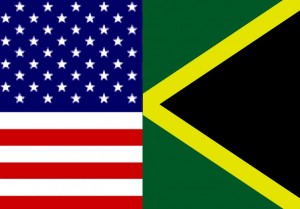The idea of what it means to be Caribbean is as fluid as the sea the denomination is named after. People from Spanish Islands, the West Indies, French speaking islands such as Haiti and St. Martin, and parts of Central and South America, all consider themselves under the umbrella of the term Caribbean. As an aggregation website, the Caribbean New Yorker hopes to attract those individuals who also feel that the idea of the Caribbean has expanded and who want to read about news from the entire diaspora. On the home page, the majority of the information is about Jamaica, but also included are stories about Cuba and Barbados.
The website also attempts to make an effort to include information from other countries like Guyana, Trinidad, and Belize. It is apparent that the idea behind the site was to present a hybrid Caribbean digital community, and as Brinkerhoff posits a “hybrid identity can be viewed as synthesized or blended” (32). The idea of a one-stop shop of Caribbean information, especially for a second generation person of Caribbean descent located in New York, is very appealing on many levels. I have many friends who claim Caribbean descent and I have traveled to St. Maarten, St. Martin, Aruba, and Puerto Rico. I got married in Montego Bay, Jamaica and have returned to the island twice. My Caribbean identity is not based solely on the island of the Dominican Republic where my father is from, but on my identity as a Caribbean New Yorker which in my view, encompasses the entire region. Indeed as Brinkerhoff writes, “generational differences inform motivations with respect to identity and its relative emphasis on homeland or host-land culture” (35). Being raised in New York City, with an immigrant parent and with the influences of others, many outside forces here in the United States have transformed my idea of what being Caribbean means. It is this “motley identity, not exclusive of ancestral home” that leads me to lay claim an amalgam of Caribbean homogeneity (59).
It is unfortunate that the webmaster of the Caribbean New Yorker shows a lack of dedication to their aggregation model. In order to be successful, a magazine themed website must post at least 5 times a day to maintain a consistent stream of interest and this site barely posts 4 times a week. The stories are poorly sited and there is no engagement in the comments section. Despite the news stories presented, there is no real commitment to original articles or op-eds. During its 4 years of operation, the Caribbean New Yorker has failed to build a hybrid community. I researched the origins of their Jamaican news stories and it was mostly obtained from the Jamaican Information Service. A vibrant website run by the Jamaican government, JIS provides real-time news of Jamaica. The same is true of the website run by the Jamaican newspaper “The Gleaner”. With a more specialized focus on the different areas of the island, The Gleaner is a direct source of information for those members of the diaspora who want a detailed overview of Jamaica. The Gleaner also uses the Discus widget for the commenting section, which provides easier access for those reading stories through social media sites like Twitter and Facebook. Social media has been proven as a medium to help to increase engagement and the sharing of information. It might serve both websites well to expand their sites to include those living outside of their country. Social capital could be built by adding tabs to focus on those of Jamaican descent who are living outside of the country, and the benefits could be felt by those in the homeland country as well as by those in the diaspora.



I love how you say “many outside forces here in the United States have transformed my idea of what being Caribbean means” because it is completely true. And I would actually argue that a good amount of the Diaspora does NOT feel horrible with the title Caribbean New Yorker if it were respected/accepted by our family members who may be of a different generation closer to the history and experience of living on the island. Being in New York, it is not completely hard to maintain connection to Caribbean cultures, but if the only island you have lived on is Manhattan, it does change your ideology of what it means to be Caribbean. We are part of a larger community here, that includes way more influences than just Dominican or Trinidadian people. I am fascinated by the questions brought up in this conversation and post. The generational differences does allow for a variety in experience of connection and creation of Caribbean space abroad.
@Jamal Possibly it’s due to generational differences that Brinkerhoff spoke of? You have a closer connection to the Caribbean and since I’m second generation…it’s a bit easier for me to expand my claim?
I have to say that I also was not impressed by Caribbean New Yorker’ website and I agree totally with your recommendations to improve. I like you referring to your identity as Caribbean New Yorker. It has a nice ring to it! I thought, “How would I feel calling myself a Caribbean New Yorker?” I have to admit that I didn’t quite like the sound of it for myself. I felt the need to identify directly with the country I’m from Trinidad and Tobago. I won’t be surprised if the majority of the Diaspora feel that way too.